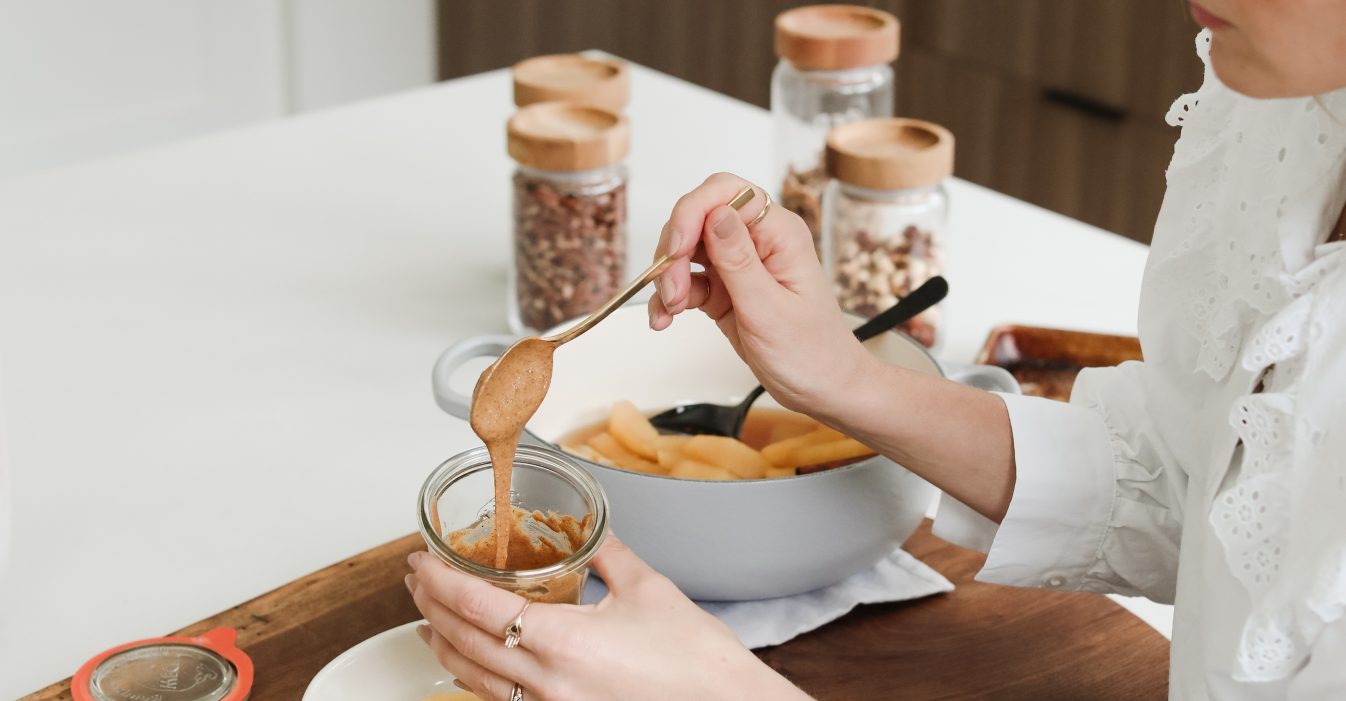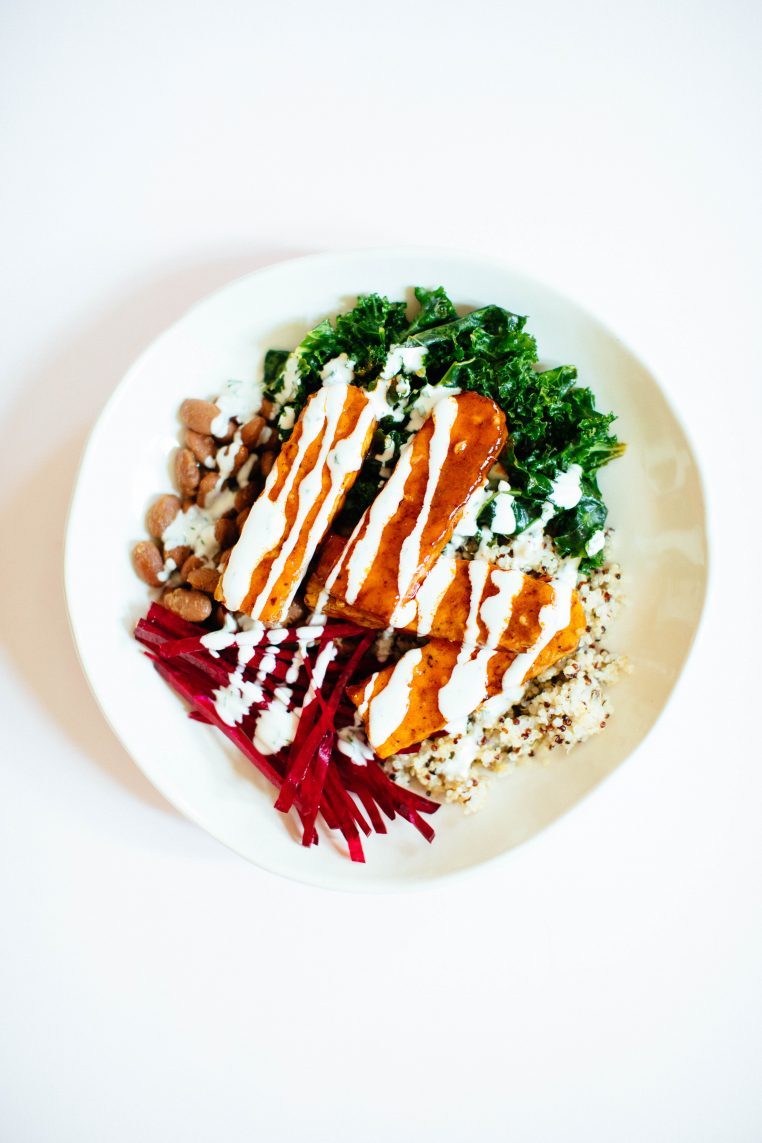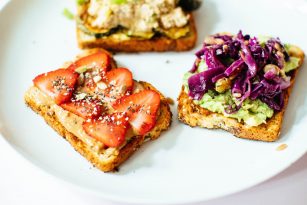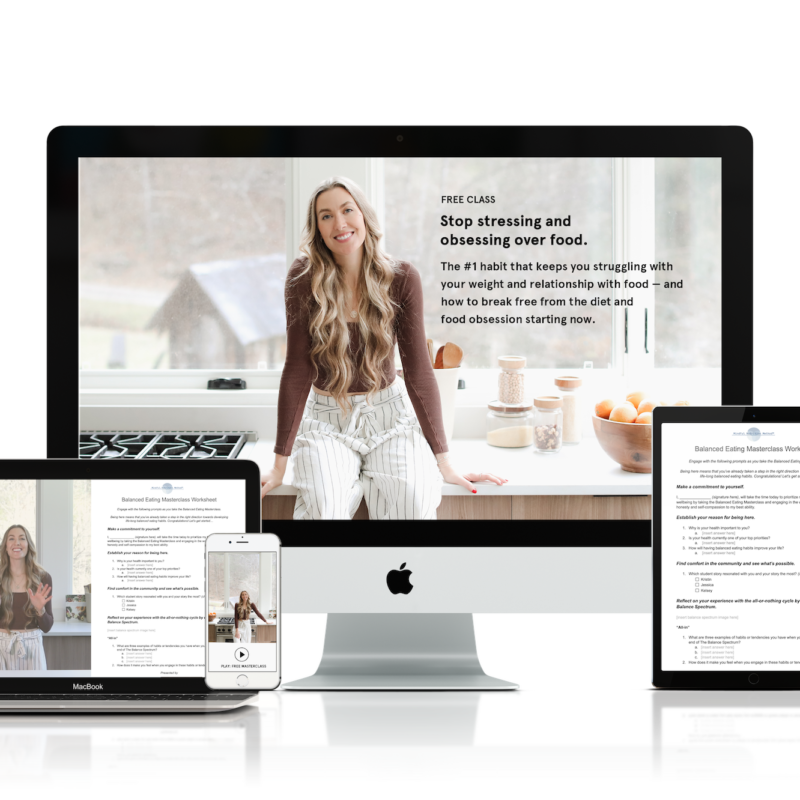Are you in the midst of a lifestyle change and wondering what your goal weight should be? Keep reading to learn what a Registered Dietitian recommends.
You’ve decided to make a shift in your habits and choices to better your overall health and well-being, congratulations!
Now you may be wondering what you’re working towards, what your specific goal weight should be.
We know that setting and checking in with our goals are a vital component of habit and behavior change, but it’s just as important to ensure that we’re setting the right kinds of goals with the best intentions for our unique body. This ensures that the goals we achieve are not only measurable and attainable but also sustainable.
So let’s chat about what your goal weight is and how you can set yourself up for success.
What Is Your Goal Weight?
It’s important to start by defining what a goal weight is, or at least what most of us think of as a “goal weight”.
A goal weight is typically the number on the scale that you’re striving to reach for a myriad of reasons — maybe that’s your ideal number, you were at that goal weight in high school and want to get back, or you think that when you reach this goal weight happiness will follow.
A goal weight is a number also used to measure success with a diet or any lifestyle changes. In order to succeed in improving your health and wellness, you must reach this particular number.
A goal weight is typically created or calculated from a past version of ourselves, potentially when they were at a weight they enjoyed most, or they use a number they’ve retrieved online from an ideal weight calculator.
Does this sound about right to you?
The Problem With Goal Weight
A goal weight is just that, it’s only focussed on weight or our physical form. It’s a numerical value that simply depicts the result of a gravitational pull — it’s just a number.
The problem with this? It’s disadvantageous to set a goal weight for yourself and have that be your sole measurement of success.
Let’s dive into why.
5 Reasons Why We Don’t Recommend Having A Goal Weight
Clinically speaking, it’s not a holistic indicator of health.
Health is defined by a plethora of different components from mental, emotional, spiritual, and physical. Within each of those categories, we have numerous tangible measurements and ways we can define “success” or progression towards a positive goal.
A goal weight doesn’t take these pillars of health into account as it’s reduced to a number on the scale.
It doesn’t reflect your full anatomical health such as your muscle mass, your adipose tissue, or your bone mass let alone the subjective and important pillars of health such as your relationship with food, your movement patterns, your daily practices, or anything else that accurately depicts your overall wellness.
This number doesn’t highlight and celebrate all of the hard work you’re putting in on a daily basis to eat more balanced. All of the tangible measurements of success you’ve been experiencing or will experience throughout your journey.
Such as how many meals you prepped this week, how often you cooked at home, what kind of movement you engaged in that you enjoyed, how many meals you ate for pure enjoyment and how many meals you ate that were more nutrient-dense, the sleep quality you had, and the list goes on.
A goal weight doesn’t accurately depict your health or give you the full snapshot of the habits you’re building over time.
A goal weight can promote disordered eating behaviors.
A goal weight number isn’t reflective of the modes and methods you choose to use to get you there, such as restriction, regulating everything you eat, only eating “clean” foods, and other modes of dieting.
It leads you to believe and think, “it doesn’t matter what I do or how I do it, as long as I reach this number.”.
This mentality can lead to a number of disordered eating habits and behaviors, from restriction, binging, purging and so many more disordered eating habits such as orthorexia.
You’re never truly satisfied, you could always lose more.
A goal weight glorifies the concept of loss and creates a state of less than — less is better, smaller is better, and lower is better.
In my experience as an RD and MNM Coach working with hundreds of our Mindful Nutrition Method students, when people reach this established goal number, they still don’t feel instantly satisfied, confident, or happy. In fact, they often are left feeling more challenged, confused, and struggling to understand why they still “feel” the same way despite reaching this goal weight.
This feeling of unfulfillment is a great example of why reaching an established weight has little to do with your actual physical body and more so your mindset and relationship to food and your body.
The vast majority of the time clients still feel like they can lose more, get the scale a little lower, and then they’ll finally be their best self, their healthiest self.
This creates a lack mindset where you’re never truly happy or fulfilled with yourself or your health.
It ignores the many phases and stages of your life.
Life is constantly changing requiring you to adapt your eating and lifestyle habits to meet yourself where you are in that stage.
Just like your life, your body is not in a fixed state, it requires change, adaptability, and growth to thrive which is a beautiful thing.
The problem with fixating on a goal weight which often uses strict diets or rigid food rules to get there is that it doesn’t take into consideration this ebb and flow for your life.
Your physical body and all the incredible things it’s able to do with and for you is meant to change and grow with your life as well.
Reflect back on different stages of your life right now, was there a time where your physical body changed to accommodate a lifestyle change such as childhood, adulthood, pregnancy, etc.? If you have yourself the rule to achieve your goal weight throughout all these stages, you’d be stuck on this number and not tending to the unique needs of each stage of life.
A goal weight can promote a negative body image.
More often than not, I find that goal weights are set and sought after in the presence of a negative body image.
When there’s a lack of confidence and self-compassion, it can be easy to set your sights on a number that appears to fix the imperfections you believe yourself to have.
The problem with this is without a positive body image, regardless of whether or not you reach said number, there will always be something wrong. There will always be adjustments you want to make.
This can leave you feeling self-conscious, uncomfortable, and unworthy. Which is never how we want you to feel!
Goal Weight v. Balanced Weight
You learned why having a goal weight is disadvantageous, how it can further imbalance your relationship to food and create negative self-talk and body image. The better and more balanced alternative to goal weight is what we call Balanced Weight.
This is where your balanced weight comes in.
What Is Your Balanced Weight?
A balanced weight isn’t determined by the number on the scale—a balanced weight encompasses far more than weight.
Your balanced weight is the physical state at which you are embodying balanced eating habits, a mindful mindset about food, and a positive relationship to food and your body—it may change depending on your unique stage of life.
In this balanced embodiment, you’re able to experience enjoyment with your food while prioritizing nourishment for your body by intentionally practicing balance with your food choices.
It’s where you’re mindfully eating, where you’re listening and taking intentional action related to your hunger, satiety, and satisfaction cues.
It’s where you feel confident and comfortable in your own skin, where you’re freely enjoying food and drinks out with your friends, and also really enjoying a Foundational Five nourish meal.
It’s having zero stress around food and endless confidence in yourself around your eating habits. It’s when you’re able to experience self-confidence and practice self-compassion while still making shifts and changes to your current habits and routines.
TAKEAWAY
Intentionally connecting with your why related to your balanced eating habits, changes in your health, your physical body, and your lifestyle is key. The more connected you can be to your intention to be balanced for life in a sustainable way, the more your food choices will align with the changes you want for yourself.
Find Your Balanced Weight with Ease and Confidence
This is exactly what we teach in the Mindful Nutrition Method. The Mindful Nutrition Method™ is a transformative online live experience with live group coaching, training and course materials, and a private community. Inside we teach our students how to create balanced eating habits for life that help you be free from food and diet obsession, maintain a balanced weight, cultivate a positive relationship with food and your body, and ultimately find joy in nourishing yourself.
McKel walks you through the steps for healing your relationship with food and teaches you how to build a new relationship that allows for growth, stability, and support.
Are you feeling stressed about food?
Sign up to watch my free masterclass today, where you’ll learn about #1 Habit That Keeps You Struggling With Your Weight and Relationship With Food — And How To Break Free From The Diet And Food Obsession Starting Now.









